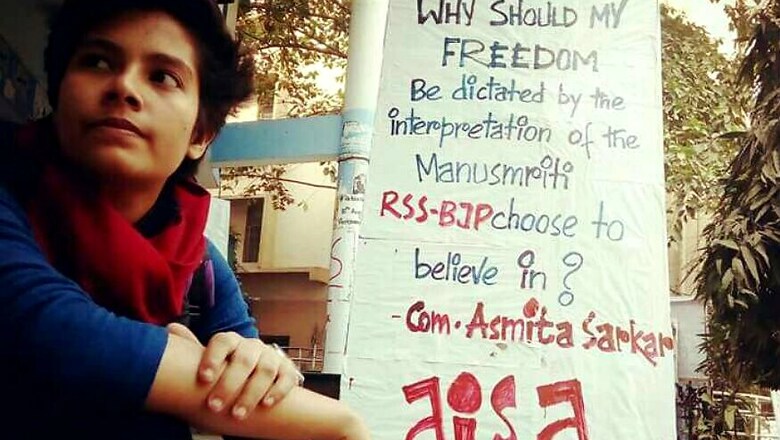
views
There’s something about 19-year-old Asmita Sarkar’s demeanour that makes you stand up and take notice despite her continuous efforts to be a face in the crowd. Brimming with confidence, the second year undergraduate student of Sociology at Jadavpur University in Kolkata has publicly declared her sexual orientation, which the law of the land considers an “unnatural offence”. But Sarkar approaches her classmates for votes on precisely this ground.
Sarkar is a lesbian, and perhaps, the first member of the LGBT community in India who is contesting students’ body elections at Jadavpur University for the post of Assistant General Secretary. The polls are scheduled for January 25, 2017, and Asmita is representing the All
India Students’ Association (AISA), the students’ wing of the Left-wing CPI (ML) Liberation.
“This is my way of making a point against section 377 of IPC which is archaic and criminalizes homosexuality in this country,” Asmita told News18.
“Our society is not black and white, which a section of lawmakers make it out to be. It is colourful. And colour is pride,” she added while stressing on the need to break the elite hegemony which prevails in India and is heavily biased against Dalits, SC-ST community members, homosexuals and transgenders.
Asmita has participated in a few pride walks in Kolkata and has even mobilised her friends to join her. Yet, she feels that mere participation in such walks is hardly enough to empower the marginalised.
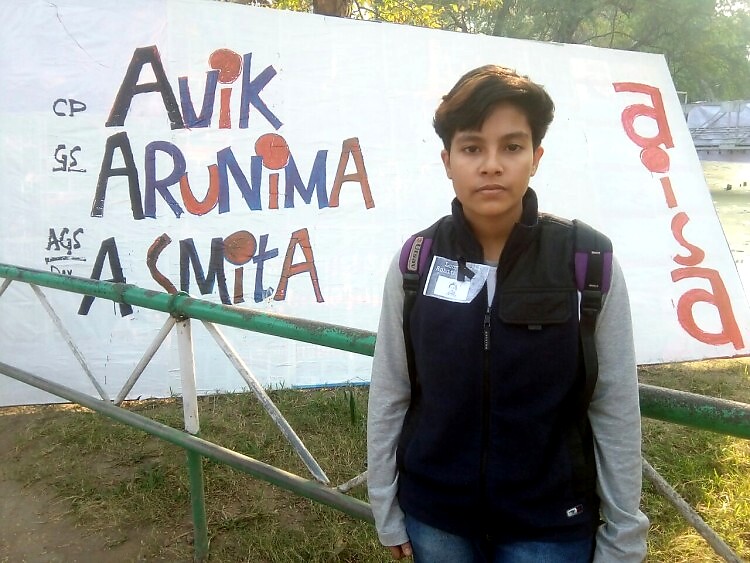
But the journey of this small-town girl from Burdwan district to Jadavpur hasn’t been a cakewalk. “It is only now that I get accepted among friends for the way I am. I was 12 when I first realised that I am attracted to girls. And like most people around me, I too thought this was something to be ashamed of. In fact, just to be sure about my orientation, I had a relationship with a boy. But for obvious reasons it didn’t work out,” Asmita said.
“Since I don’t like wearing earrings or lipstick and don’t have long hair; since I don’t feel comfortable in women’s clothing, I have always been at the receiving end of taunts and disapproving looks. Several of my teachers back in school called me ‘boy-like-girl’. My friends back home maintained distance and bitched behind my back. I kept silent,” she said.
However, convincing her parents was something Asmita found “most difficult”. “They were crestfallen,” she said, “I locked myself up in my room for days on end. They stopped talking to me. Things haven’t improved much at home even now.”
“I want to start earning quickly so that I can move out of my parents’ house and face the world the way I want to,” Asmita said, adding that her two-year stay at the JU campus has helped her enough to stick to her resolution.
Asmita’s senior at the campus and AISA activist Abhishek Roy Chowdhury theorised the move to include her in the office bearer panel of candidates. “We see this as the assertion of the marginalised against the repression of the ruling establishments of this country.”
“In this election, we want to test the mandate of JU students against Article 377 and other repressive mechanisms of the ruling establishments,” he said.
Recovering from a recent breakup that Asmita had with a girl, who backed out of the relationship after her parents sternly objected, Asmita wants to simultaneously focus on her studies and politics. “Five years down the line, I see myself pursuing a career of my choice, free from the expectations of my parents. I will certainly continue with politics. And maybe, just maybe, I will have a proper partner by then,” she said.













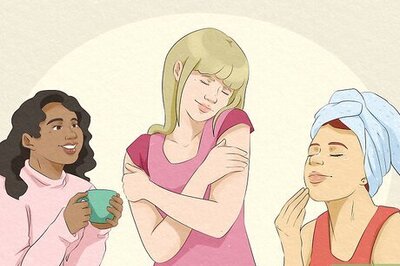


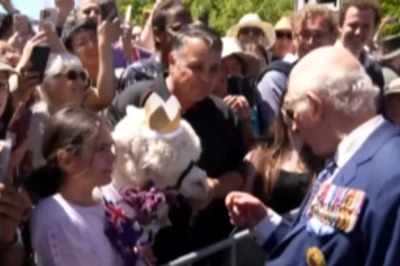
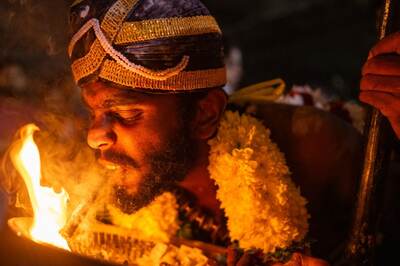

Comments
0 comment